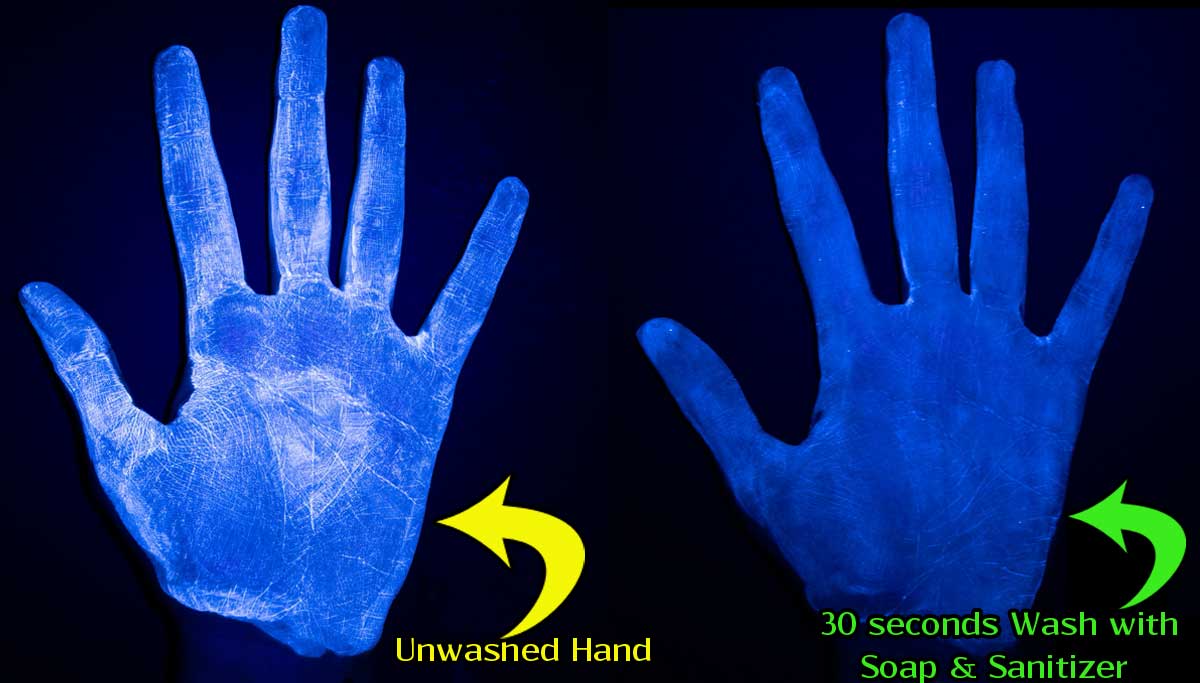The world is in the grip of COVID-19. The unexpected outbreak of Coronavirus has already killed more than 8000 across the globe, where China and Italy own a big share in mortality. World Health Organization flagged it as a Pandemic asked nations to consider it as an emergency situation.
World Nations went in lockdown and distanced their people from social life. Because the only goal left is to stop further spread of this disease. New health laws are taken into action, flights canceled, Public gatherings are banned, entertainment places, educational institutions, and working places are closed, thus brought down the speed of the spread of this Novel Coronavirus along with the air pollution of many nations.
Though it is a lockdown situation in many nations, WHO, CDC, and many Health Ministries of different nations are advising the people to stay hygiene and clean as the disease is so contagious. According to WHO, the novel Coronavirus can suspend and sustain itself in the air in certain conditions like humidity and heat. So, using a medical mask has become so important also, WHO and CDC advise frequent handwash using alcohol-based hand wash and sanitizers and soaps.
Coronavirus handwashing method
When talking about hand wash, sanitizers, and soap, a few kinds of questions can arise in mind. They are, how can they kill viruses like Coronavirus, how to use them, how long to use them on your hands, do they all the germs on the palm (Most of the handwash ads show their products kills 99.9% of germs. Then what about the rest 0.01%), which is the best handwash and soaps or sanitizers?
There are some perceptions among the population; sanitizers are more effective than soaps. But health officials say, it depends on how you use those disinfectants on your hands. Nowadays, hand sanitizers have become handier to use. They can be kept in pockets, purse, and suspended as a key chain. And they can be used without water, thus made people run after hand sanitizers rather than soaps and handwashes.
Researchers say that though hand sanitizers are good, their effectiveness is based on how you use them. The claim of hand sanitizer kills 99.99% of germs without water is under lab conditions, but literally, it kills only around 46% to 60% of germs in hand; it doesn't care about the dirt on the hands, says research done back in 2009. Even after such a result, why WHO and CDC added hand sanitizers in their disinfectant list is because they do kill most of the germs when they are used with proper procedure. But there are a lot of differences between the lab condition and real-world practices.
Most of the bacteria that stick to hands have cell walls, and non-polar solvent like alcohol has the ability to break those cell walls and wash them away. In the case of Coronavirus (Virus usually doesn't have cell walls), it is protected by a lipid layer that can be broken down by any alcohol-based hand sanitizer or hand wash or soap. But, while using those disinfectants in a typical environment other than lab conditions, the contact time duration of those microbes with the disinfectant is the key player.
Increasing the time duration with the disinfectant might end up in a greater result rather than just rinsing and applying the solution on hand. Most of the health officials emphasize a time duration of 20 seconds, and elongating the time to 40 seconds will give even better results.
How to use a Hand Sanitizer:
WHO and CDC prefer sanitizers with more than 60% alcohol content rather than non-alcohol based stuff as it is clinically proven that alcohol can get rid of microbes easily. WHO and CDC have designed a three-step procedure for a proper handwash that could enhance the effectiveness of any handwash sanitizers and soap.
In the case of sanitizers, a liberal application of the solution would give better results rather than pouring just a drop. Rub the palm-like covering the entire palm with the solution. Then interlock the fingers and rub again and then rub the back of your both palm using the other. Keep rubbing your palms until you get dry hands. These steps are believed to extend the exposure time of germs in your hands with the alcohol.
Many health officials suggest the above steps for handwash and soap. But most of the health officials advise using sanitizers only when there is no availability of soap and water. Or use both if possible.
Most people are now indoors except in a few countries which have low spread or zero spread. Still, people are wandering and working day and night; people like who are assigned by the government to take measures against COVID-19, media persons, defense personals, cops and health officials. Washing hands frequently and staying immune is the better way to stay away from this pandemic.
